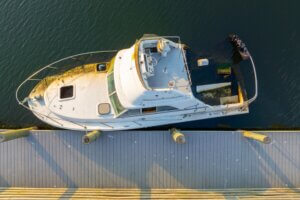Though less common than vehicle accidents, boating accidents may cause major injuries, property damage, and sometimes even death. Whether you sail professionally or recreationally, knowing the legal procedures to follow after a boating accident is vital. Attorney Wayne Resmini has provided a list that can enable you to negotiate the turbulent seas of legal responsibility:
1. Ensure Safety and Medical Assistance
Ensuring everyone’s safety and well-being takes the front stage after any disaster. See medical help right away if injuries occur. Not only is this important for the health of the affected parties, but it also creates a record of injuries suffered that might be rather important for insurance claims or, later on, legal actions.
2. Report the Accident
Boating accidents have to be reported to the relevant authorities in many countries. Usually, this covers the local marine law enforcement department or Coast Guard. It’s essential to report the accident, even if there are no significant injuries, so that the incident may be formally recorded. Ignoring an accident might land legal fines or complicate insurance claims.
3. Document the Scene
As near the accident location, gather as much data as you can. Included here are:
Photo images
Photograph the boats engaged, any damage done, the surrounding area, and any obvious injuries.
Witness statements
Get quotes and contacts from every accident witness. Their accounts might be rather helpful for your interpretation of events.
Exchange Information
Share your contact data, insurance information, and boat registration numbers with the other accident participants.
4. Preserve Evidence
Save any tangible proof of the accident. This might include broken machinery, clothes, or any other object that could be proof. Until it has been fully recorded, avoid fixing or changing any damaged property; this might compromise your capacity to show culpability downstream.
5. Consult with Legal Professionals
After a boating accident, it is essential to get legal guidance, particularly in cases of significant injuries or damages. A marine attorney focused on watercraft accidents may provide insightful advice on your rights and obligations. They may also assist in negotiating complex maritime legislation and insurance claim procedures.
6. Understand Liability and Insurance Coverage
In a watercraft accident, figuring out who is to blame may be difficult and call maritime law, state rules, and insurance policies. Liability may be affected by things like carelessness, irresponsible operation, and boating law-breaking. Determining the damages compensation depends on knowing your insurance coverage and the coverage of other parties engaged.
7. File an Insurance Claim
Tell your insurance company straight away about the accident. Give them all the required paperwork—including pictures, witness statements, incident reports, and any injuries-related documents. Your insurance provider will evaluate the claim and decide on coverage depending on your policy and the accident conditions.
8. Prepare for Legal Proceedings
Should negotiations or alternative dispute resolution fail to produce a settlement, becoming ready for legal action might become essential. This entails compiling further proof, preparing for court appearances, and maybe drafting legal papers. Your attorney will argue on your behalf and walk you through every stage of the court system.
9. Learn from the Experience
Finally, consider the incident and grow from the knowledge. Think about the steps you may have taken to stop the mishap and enhance your boating safety procedures moving forward. Knowing the reasons for the accident will help guarantee the safety of yourself and others on the water and help avoid such events in the future. You will want to ensure your safety is protected, and that’s where Attorney Wayne Resmin can help. Contact today!

